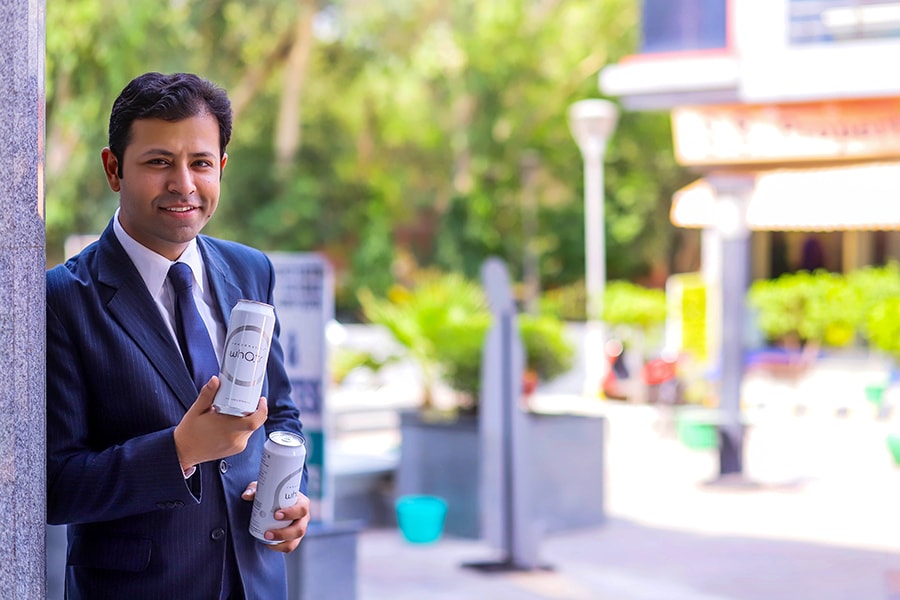
'What about the pandemic of plastic bottled water?'
Ankur Chawla of Responsible Whatr believes he can change the way Indians consume packaged drinking water by moving to aluminium cans

Ankur Chawla of Responsible Whatr claims to have sold 1 lakh aluminium water cans since the product launched in June.
Responsible Whatr, a brand that sells natural spring water in aluminium cans, was set to be rolled out in March this year, the same month India went into a nationwide lockdown to fight the Covid-19 pandemic. With the launch, Ankur Chawla was getting ready to fight a ‘pandemic’ of another kind: Consumption of water and beverages in plastic bottles.
Chawla claims to have sold 1 lakh aluminium cans since his product hit the market in June. Given the price tag the fledgling brand carries—Rs60 for 500 ml of water—the numbers are a bit staggering. “The Covid-19 pandemic year is the right time to do something about another pandemic that we have unfortunately learnt to live with,” says Chawla, co-founder of Responsible Whatr, referring to the environmental disruption caused by the menace of water and beverages sold in plastic bottles. It is not just consumers, but even businesses that need to be responsible about sustainability, says Chawla, in an interview with Forbes India. Edited excerpts:
Q. Is aluminium a greener alternative? Production of such cans reportedly involves pumping large amounts of carbon into the atmosphere…
The use of recycled aluminium in cans cuts down greenhouse emissions significantly as compared to using virgin aluminium. Cans are made up of more than 70 percent recycled aluminium, and the recycled aluminium content can go up to 98 percent. When the per capita consumption of cans in India increases, along with the high scrap value of cans, they will be recycled more instead of reaching the landfills. We have to be responsible for our waste as well. Project Zero is one such initiative where we are offering to collect used cans from our institutional buyers. We then send the scrap back to our can manufacturers so that it can be converted into a fresh can for our consumers, thereby creating a closed loop.





